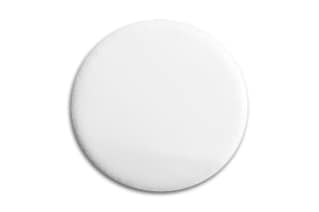
Hydrophobic, polytetrafluoroethene (PTFE) membranes are recommended for use with non-aqueous solvents. Organic-based, highly acidic or basic samples and solvents.
|
UNSPSC |
41104918 |
|
Product Type |
Filtration |
|
Units per Package |
100 pk |
|
Diameter |
47 mm |
|
Format |
Solvent Filter |
|
Pore Size |
0.45 µm |
|
Separation Mode |
Non polar |
|
Filter Type |
PTFE |
PTFE CR Solvent Filter, 47 mm, 0.45 µm, 100/pk
To easily conduct the extraction and filtration of strong solvents and organics, rely on the PTFE CR Syringe Filter. The lab equipment is accredited for HPLC to ensure low extractables and provides high-quality filtration for analytical samples. This is a hydrophobic polytetrafluoroethylene (PTFE) membrane that is suitable for usage with non-aqueous solvents, organic-based, strongly acidic, or basic samples and solvents. The PTFE CR Syringe Filter's housing material is a hydrophobic polytetrafluoroethylene membrane on polypropylene support, making it ideal for filtration of gas and/or organic liquids. When using a 13 mm small spike outlet to fill sample vials, it also prevents an "air bubble" lock.
You can trust the PTFE CR Syringe Filter to function with HPLC because it has been tested for compatibility with common HPLC solvents using known HPLC protocols. To ensure that this is the case, representative samples with low quantities of UV-detectable extractables are analyzed using a highly sensitive HPLC approach. While the PTFE CR Syringe Filter is suitable for most filtrations, it is important to remember that it is not approved for use in medical, clinical, surgical, or other patient-related applications. The PTFE CR Syringe Filter, on the other hand, can be used for quality extractions and filtrations in life science, pharmaceutical techniques, research and development, quality control, and specialty environmental applications.
The PTFE CR Syringe Filter is manufactured with superior separation technology, ensuring accurate pore size ratings for improved instrument and column protection. It also provides consistent analytical results (lot-to-lot) and low extractable components for minimal chromatographic interference. Furthermore, the construction materials were designed and chosen specifically for analytical analysis, with lower extractables and lower API adsorption.
Waters carries a wide range of filtration products, which you may learn more about on our website. You may quickly shop for lab equipment via our online store. You may also want to check out the wwPTFE Acrodisc Solvent Filter, 0.45 μm 47 mm 50/Pk; Water wettable, hydrophilic, polytetrafluoroethylene) membranes are a "next-generation," all-purpose, hydrophilic membrane for aqueous, acidic, basic, non-aggressive organic, and aggressive organic solutions. It offers low protein binding and low levels of UV-absorbing extractables. (For more info, see: Acrodisc wwPTFE Syringe Filters Versus Syringe Filters with Hydrophilic Polypropylene (GHP) Membranes White Paper: April 2021 720007171EN).
How Does Temperature Affect Liquid Chromatography?
Chromatography involves a series of equilibrium interactions where analytes are either dissolved in the mobile phase or adsorbed onto the stationary phase of the column. The rate of analyte exchange between the mobile and stationary phases is accelerated at higher temperatures. Consequently, elevated temperatures expedite the analysis process by promoting faster analyte migration.